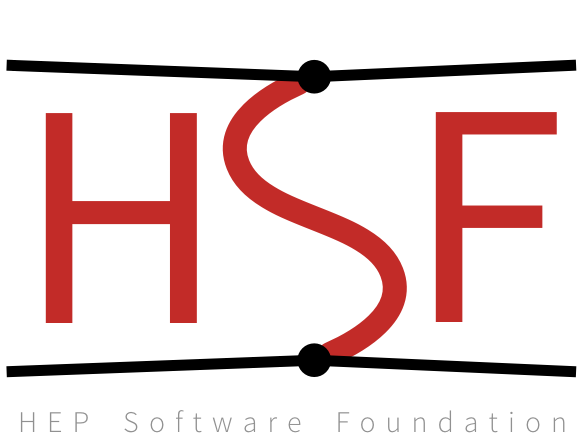Usage Guide#
This guide provides practical examples of how to use the Nopayloaddb API for common operations.
Getting Started#
Before using the API, ensure you have the service running. See Installation for setup instructions.
Service URLs
Local development:
http://localhost:8000
API Base Path
All API endpoints are prefixed with /api/cdb_rest/.
Common Workflows#
1. Querying Payloads#
The most common operation is querying for payloads based on a Global Tag and IOV.
Basic Query
curl 'http://localhost:8000/api/cdb_rest/payloadiovs/?gtName=sPHENIX_ExampleGT_24&majorIOV=0&minorIOV=999999'
Response
[
{
"id": 210,
"name": "Beam_210",
"global_tag": "sPHENIX_ExampleGT_24",
"payload_type": "Beam",
"payload_iov": [
{
"id": 13425388,
"payload_url": "D0DXMagnets.dat",
"major_iov": 0,
"minor_iov": 999999,
"payload_list": "Beam_210",
"created": "2022-02-21T15:28:20.949696"
}
],
"created": "2022-02-21T15:17:06.481186"
}
]
Filter by Payload Type
curl 'http://localhost:8000/api/cdb_rest/payloadiovs/?gtName=sPHENIX_ExampleGT_24&payloadType=Beam&majorIOV=0&minorIOV=999999'
3. Managing Payload Types#
List Payload Types
curl http://localhost:8000/api/cdb_rest/pt
Create Payload Type
curl -X POST http://localhost:8000/api/cdb_rest/pt \
-H "Content-Type: application/json" \
-d '{
"name": "MyPayloadType",
"description": "Description of my payload type"
}'
4. Managing Payload Lists#
Create Payload List
curl -X POST http://localhost:8000/api/cdb_rest/pl \
-H "Content-Type: application/json" \
-d '{
"name": "MyPayloadList_123",
"description": "Test payload list",
"global_tag": 1,
"payload_type": 1
}'
Attach Payload List to Global Tag
curl -X POST http://localhost:8000/api/cdb_rest/pl_attach \
-H "Content-Type: application/json" \
-d '{
"global_tag": "MyGlobalTag",
"payload_list": "MyPayloadList_123"
}'
5. Managing Payload IOVs#
Create Single Payload IOV
curl -X POST http://localhost:8000/api/cdb_rest/piov \
-H "Content-Type: application/json" \
-d '{
"payload_url": "calibration_data_v1.root",
"checksum": "sha256:abcd1234...",
"size": 1024000,
"major_iov": 0,
"minor_iov": 1000,
"major_iov_end": 0,
"minor_iov_end": 2000,
"payload_list": 1,
"description": "Calibration data for run 1000-2000"
}'
Bulk Create Payload IOVs
curl -X POST http://localhost:8000/api/cdb_rest/bulk_piov \
-H "Content-Type: application/json" \
-d '[
{
"payload_url": "data1.root",
"checksum": "sha256:1111...",
"major_iov": 0,
"minor_iov": 1000,
"major_iov_end": 0,
"minor_iov_end": 1500,
"payload_list": 1
},
{
"payload_url": "data2.root",
"checksum": "sha256:2222...",
"major_iov": 0,
"minor_iov": 1500,
"major_iov_end": 0,
"minor_iov_end": 2000,
"payload_list": 1
}
]'
Best Practices#
IOV Management#
IOV Ranges
Use non-overlapping IOV ranges within a payload list
Ensure continuous coverage for time-dependent data
Use appropriate major/minor IOV values for your experiment’s time model
Payload URLs
Use descriptive, unique filenames
Include version information in filenames
Store payload files in reliable, accessible storage
Global Tag Versioning#
Naming Convention
Use descriptive names that indicate purpose and version
Include experiment name, data-taking period, and version
Example:
sPHENIX_Run23_Commissioning_v1.0
Status Management
Use appropriate status values to indicate global tag readiness
Test global tags before marking as production-ready
Document changes and improvements
Error Handling#
Common HTTP Status Codes#
200 OK: Successful request
201 Created: Resource created successfully
400 Bad Request: Invalid request data
404 Not Found: Resource not found
500 Internal Server Error: Server error
Example Error Response
{
"error": "Global tag not found",
"code": 404,
"details": "Global tag 'NonExistentGT' does not exist"
}
Troubleshooting#
Common Issues#
No Payloads Found
Check that the global tag name is correct
Verify that the IOV values are within the payload’s validity range
Ensure the global tag contains payload lists for the requested payload type
Authentication Errors
Verify that authentication is properly configured if enabled
Check that valid tokens are being sent in requests
Database Connection Issues
Check database connectivity and credentials
Verify that migrations have been applied
Check database server status
Performance Optimization#
Query Optimization#
Use Specific Queries
Include payload type filters when possible
Use appropriate IOV ranges to limit results
Prefer the main
/payloadiovs/endpoint for complex queries
Batch Operations
Use bulk creation endpoints for multiple payloads
Minimize the number of individual API calls
Consider caching frequently accessed data
Database Considerations
Monitor query performance
Use appropriate database indexes
Consider read replicas for high-load scenarios
Integration Examples#
Python Client Example#
import requests
import json
class NopayloaddbClient:
def __init__(self, base_url):
self.base_url = base_url.rstrip('/')
self.api_base = f"{self.base_url}/api/cdb_rest"
def get_payloads(self, gt_name, major_iov, minor_iov, payload_type=None):
"""Get payloads for a specific global tag and IOV."""
params = {
'gtName': gt_name,
'majorIOV': major_iov,
'minorIOV': minor_iov
}
if payload_type:
params['payloadType'] = payload_type
response = requests.get(f"{self.api_base}/payloadiovs/", params=params)
response.raise_for_status()
return response.json()
def create_global_tag(self, name, author, description, status_id):
"""Create a new global tag."""
data = {
'name': name,
'author': author,
'description': description,
'status': status_id
}
response = requests.post(f"{self.api_base}/gt", json=data)
response.raise_for_status()
return response.json()
# Usage
client = NopayloaddbClient('http://localhost:8000')
payloads = client.get_payloads('sPHENIX_ExampleGT_24', 0, 999999)
print(f"Found {len(payloads)} payload types")
Shell Script Example#
#!/bin/bash
BASE_URL="http://localhost:8000/api/cdb_rest"
GT_NAME="sPHENIX_ExampleGT_24"
MAJOR_IOV=0
MINOR_IOV=999999
# Function to query payloads
query_payloads() {
local gt_name=$1
local major_iov=$2
local minor_iov=$3
curl -s "${BASE_URL}/payloadiovs/?gtName=${gt_name}&majorIOV=${major_iov}&minorIOV=${minor_iov}" | jq .
}
# Function to list global tags
list_global_tags() {
curl -s "${BASE_URL}/globalTags" | jq '.[].name'
}
# Usage
echo "Global tags:"
list_global_tags
echo "Payloads for ${GT_NAME}:"
query_payloads $GT_NAME $MAJOR_IOV $MINOR_IOV
